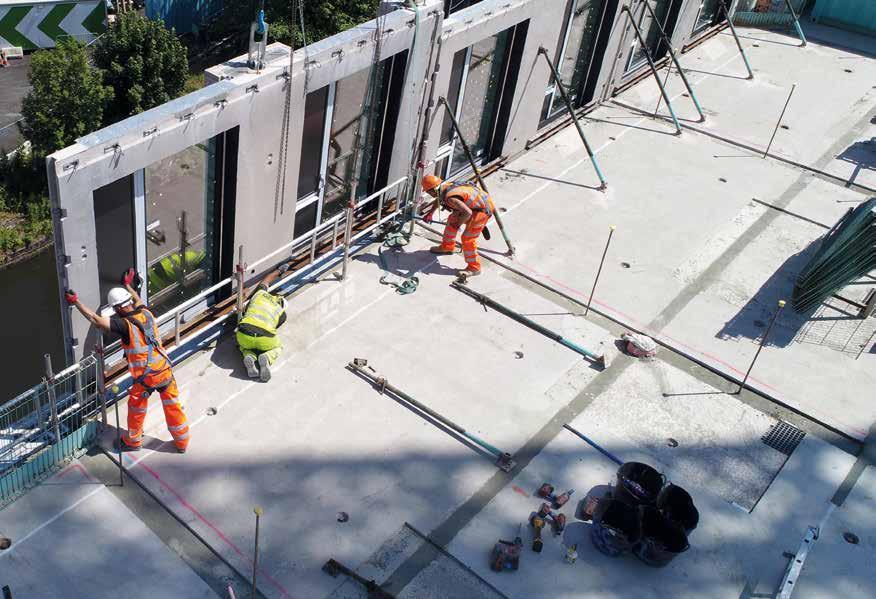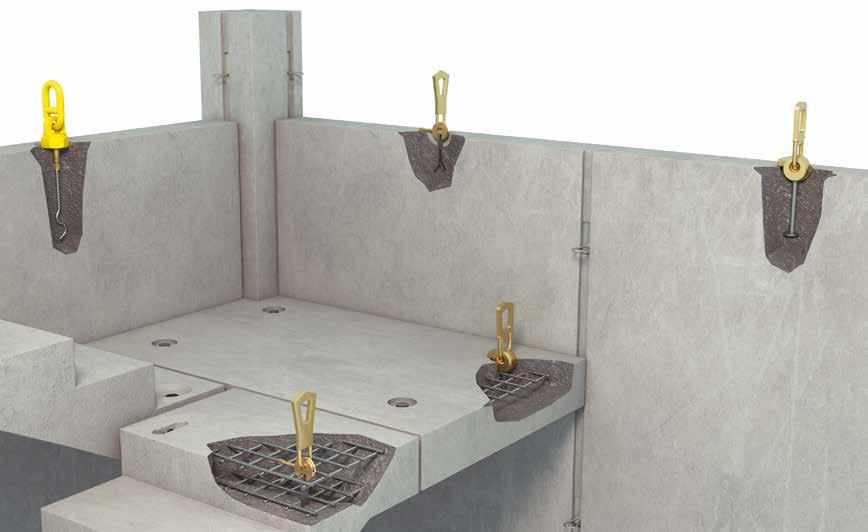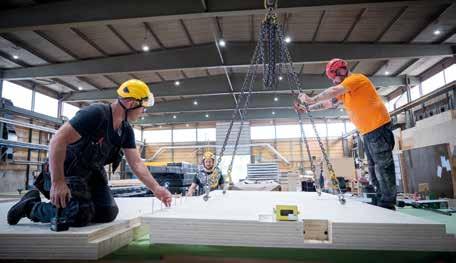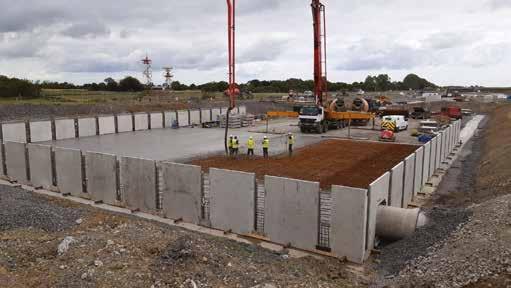
2 minute read
MAKE UK MODULAR
the 34,000 needed to replace retirees) with a far greater proportion in scarcely available construction trades.
Like any nascent sector, in order to deliver, the sector needs government’s backing as it scales up. Of course, we like the whole of the housebuilding sector would also like to see progress on the permacrisis facing planning and we are working closely with other leading trade bodies on this. There are also a number of specific policy levers to grow modular specifically. Therefore, we are calling on Government to:
• Remove the accidental double government levy charge on modular manufacturers by exempting them from the scope of the CITB levy.
• Build supply chain capacity by repurposing the £10million allocated for the MMC Taskforce and use it to support a match-funded supply chain transformation programme based on those government has successfully delivered in aerospace, offshore wind, and nuclear.
• Solve the housing crisis faster by dedicating 40% of the Affordable Homes Programme to modern methods of construction.
4 workers with the skills to work in precision manufacturing. Only 10% of modular workers are in construction roles. Instead, they are in manufacturing. The skills needed are easy to learn on the job with inhouse training, and efficient assembly line processes mean modular house builders use 50% fewer workers to construct the same number of homes. This builds additionality in supply while also delivering productivity gains of up to 40%.
This isn’t about replacing traditional labour or skills or putting people out of work. It’s about creating additionality in the market, meaning more homes, more jobs, more taxes paid into the Treasury, and more economic activity and growth. Traditional building can and must keep building, but modular can supplement what it does without cannibalising an already overstretched workforce.
The UK needs to build nearly 92,000 extra houses annually to reach the 300,000 homes target. Hypothetically, modular could deliver this with as few as 46,000 extra workers, of which only 5,000 to 10,000 may need to be in skilled construction trades. In contrast, building these extra homes traditionally would likely require 103,000 additional workers (on top of
It seems that these messages are starting to land with a recent series of parliamentary questions from Shadow Ministers to the Government following the publication of the report combined with increased interest from the civil service and national press. With a general election next year, the window is closing for whoever forms the next government to set out their plans to finally deliver a housing market which works for all. For the entire housebuilding sector, it is crucial that modular is part of those plans.
For more information and to download the reports ‘Insight, Impact & Influence 2022’ and ‘Who will be the builders? Modular’s role in solving the housing labour crisis’ visit: www.makeuk.org/about/make-uk-modular


Images:
01. Steve Cole, Director, Make UK Modular and Chair, ilke Homes’ Dave Sheridan
02-03. New Make UK Modular reports have shed light on where the many pressure points are within the modular housing market 04. The integration of offsite manufacture is key to increase the amounts of homes the UK requires







